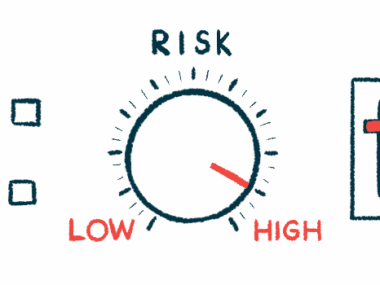Rare asymptomatic infection hides in patient with Cushing’s syndrome
Report: People with disorder who are immunocompromised may be at risk
Written by |

People with Cushing’s syndrome who are immunosuppressed due to high cortisol levels, or hypercortisolism, may be at risk for rare asymptomatic infections, according to a recent case report.
A man diagnosed with Cushing’s syndrome tested positive for the Rhodococcus bacteria, but he didn’t have any symptoms of an infection and hadn’t experienced any known exposures.
Even if they’re not causing problems, such infections need to be identified and treated, because they could later spread and become more serious, according to the study authors.
“This unusual, asymptomatic presentation highlights the potential for opportunistic pathogens to arise in the context of immunosuppression due to chronic hypercortisolism,” researchers wrote. “The incidental nature of this finding raises important considerations about the clinical significance, diagnostic evaluation, and management of such cases, particularly in the absence of typical risk factors or symptomatology.”
The report, “A silent invader: asymptomatic Rhodococcus infection unmasked in a patient with ectopic ACTH-dependent Cushing’s syndrome,” was published in the European Journal of Case Reports in Internal Medicine.
It’s ‘exceedingly rare’ for these infections to be asymptomatic, researchers say
Cushing’s syndrome refers to a group of conditions, including Cushing’s disease, marked by hypercortisolism. This leads to body fat changes, skin and hair changes, mental health and emotional problems, diabetes, high blood pressure, and various other symptoms.
Cortisol plays a key role in suppressing the immune system, so people with Cushing’s are also immunocompromised, meaning they are more susceptible to infection.
In their report, the researchers discussed the case of a 29-year-old man with Cushing’s syndrome who had an asymptomatic Rhodococcus infection. Rhodococcus encompasses a rare group of opportunistic bacteria found in soil, water, and livestock that mainly infect immunocompromised people.
For such individuals, Rhodococcus infections lead to a respiratory illness with symptoms such as cough, shortness of breath, fatigue, and fever. According to the study authors, it is “exceedingly rare” for these infections to be asymptomatic.
The patient came to the researchers’ medical center in the U.S. with diabetes and high blood pressure that were not controlled with standard treatment. He said he had rapidly gained about 70 pounds in the last year. A physical examination also showed other signs of Cushing’s.
Further tests suggested that the man had Cushing’s syndrome due to excess ectopic adrenocorticotropic hormone (ACTH) secretion.
ACTH is a hormone that signals the adrenal glands, which sit atop the kidneys, to make cortisol. ACTH is usually made in the brain’s pituitary gland, but ectopic means it’s made elsewhere. In this case, the source appeared to be a noncancerous tumor in the lungs.
Man at risk of worse infection despite lack of symptoms
Analyses of tumor tissue revealed the presence of Rhodococcus. Still, the patient had no related symptoms and hadn’t been exposed to sources where the bacteria are usually found.
The researchers thus concluded that the presence of the bacteria “likely reflects an opportunistic infection due to the patient’s immunocompromised state from chronic hypercortisolism.”
Although symptoms were not present, the man was at risk of progression to a more substantial infection due to his immunocompromised status, according to the authors. For that reason, he was started on antibiotics.
Over the next month, the lung mass continued to grow, and the man underwent surgery to remove the part of the lung where it resided. Tissue analyses showed that Rhodococcus was still present despite the antibiotics, and there were signs of malakoplakia, an inflammatory condition that can arise secondarily to bacterial infections.
This case illustrates the complexity of managing incidental opportunistic infections in immunocompromised hosts, highlighting the need for thorough microbiological evaluation and a cautious approach to antimicrobial [antibiotic] selection in the absence of classic clinical symptom.
The doctors switched him to a different long-term antibiotic regimen. They also put him on ketoconazole, an antifungal medication that’s sometimes used off-label to lower cortisol levels in Cushing’s patients.
While the lung mass was the suspected source of ACTH secretion, that could not be definitively established. The researchers began a series of imaging tests to gather more evidence.
“If the source remains occult [hidden] despite current imaging, future diagnostic steps will include [tests to] definitively exclude a pituitary origin,” the researchers wrote. “This case illustrates the complexity of managing incidental opportunistic infections in immunocompromised hosts, highlighting the need for thorough microbiological evaluation and a cautious approach to antimicrobial [antibiotic] selection in the absence of classic clinical symptoms,” they concluded.







